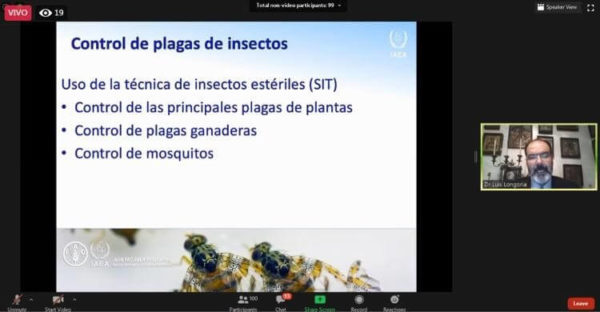Updates from PES SB Chapter at UPIITA-IPN, Mexico: IPEC and Gender Equality Event
Nuclear energy can play a vital role in many countries to handle energy crises in an effective way. Unfortunately, some people still think that nuclear energy is dangerous, linked to accidents, disasters, mutations, bombs, etc. In order to change this situation, it is necessary to educate Mexican society and thus we organized the International Power and Energy Congress (IPEC). The nuclear edition of the IPEC took place from December 14 to 18. The event was organized by the PES student branch chapter at UPIITA-IPN (UPIITA-The Interdisciplinary Professional Unit in Engineering and Advanced Technologies, in Spanish: Unidad Profesional Interdisciplinaria en Ingeniería y Tecnologías Avanzadas, IPN- National Polytechnic Institute), Mexico City, Mexico. It was held in collaboration with the PES chapter (PES-UPIITA) IPN as a Women in Power (WIP) event and with Women in nuclear Mexico (WiNMX). It was a one-week long event with female and male experts from the nuclear industry. It included energy-specific and non-energy applications of nuclear engineering to attract the attention of more public. About 16 PES-UPIITA volunteers participated in the program for designing posters and moderating talks.
On the first day, an introduction to the nuclear industry was presented. On the next day, we had the presence of Dr. Luis Carlos Longoria who introduced the International Atomic Energy Agency (IAEA) and its various resources. The next day was spent discussing various applications of nuclear power. Next, the fundamentals of nuclear power generation were demonstrated. On the last day, the event was concluded by talking about the future of nuclear energy, and also we organized a trivia game.

Talk with Dr. Luis Carlos Longoria
The nuclear edition of the International Power and Energy Congress (IPEC) took place from December 14 to 18. We had a total of 243 people registered and 297 people who watched the event through the Zoom platform. On the other hand, on Facebook, live broadcasts of the talks had reached approximately 15,000 people. From the registration feedback, it is found that the vast majority of the registered people were interested to know the fundamentals of nuclear energy rather than very specialized talks. It is also known that the audience was from different states of the Mexican Republic and other Latin American countries. The entire event was held virtually due to the pandemic which facilitated the attendance of some people from another country. It was a free and accessible event for anyone. It is expected that the registered participants learned the fundamental principle of nuclear energy and its applications. This type of event will help them in their practical life.

Some participants in the nuclear energy program
A virtual event on gender equality was organized by UPIITA-IPN PES SB Chapter. This was the first edition of Women in Engineering Experiences and despite the pandemic, because of our great effort, 6 student branches were part of this event. On the Facebook page, there were 1.5k viewers and we had more than 27 attendees. Taking advantage of the pandemic we made this event completely online and got participation from other countries. Hence, we get an opportunity to know different perspectives. The advantages of social networks were acknowledged.


Photo of the main participants
The greatest satisfaction that we had as organizers was to watch and listen to each of the participants. We could realize the hurdles of women even a few years ago and found ourselves fortunate. Nowadays all women have the right to develop in this world and build their own identity, without falling into stereotypes that discriminate against the role of the female engineer. As female engineers we have to overcome the personal challenges that we have due to being an engineer in general and due to being a woman engineer, and learn from it, grow and be a better person for future generations. We must support each other, grow together and share our experiences because that way we can know how other girls feel about the same issue. We can change the world as a woman and as an engineer.
B. Nahomi Valeria and G. A. Leonardo Gael
IEEE PES UPIITA IPN
